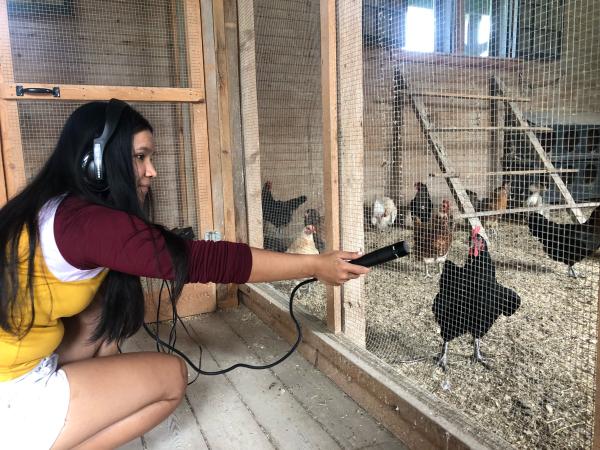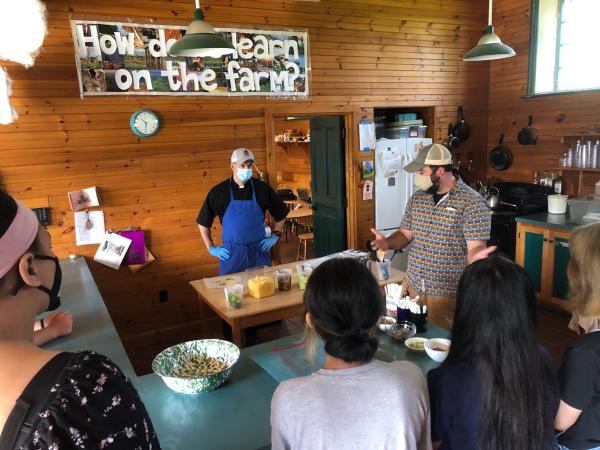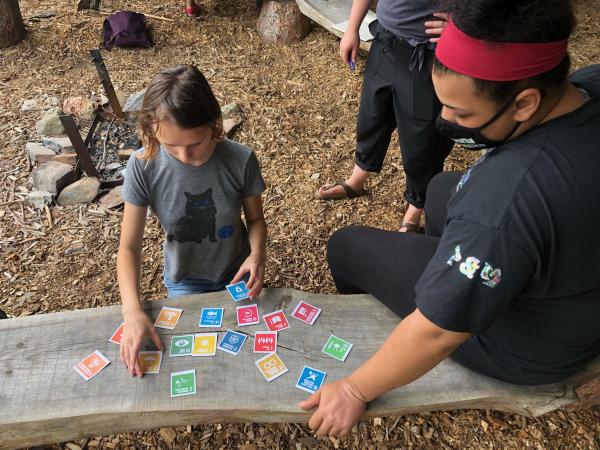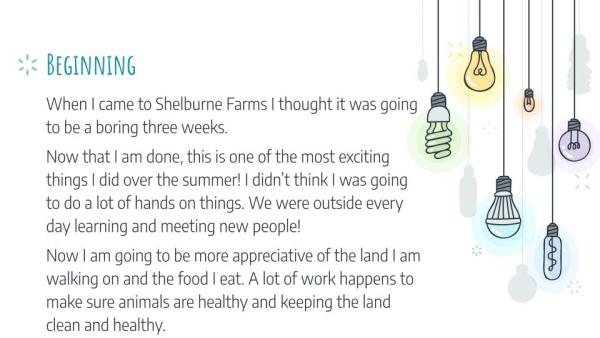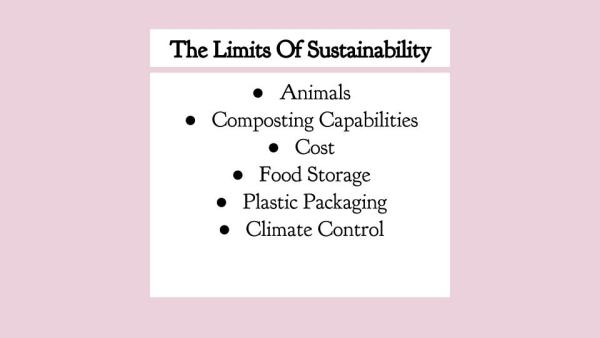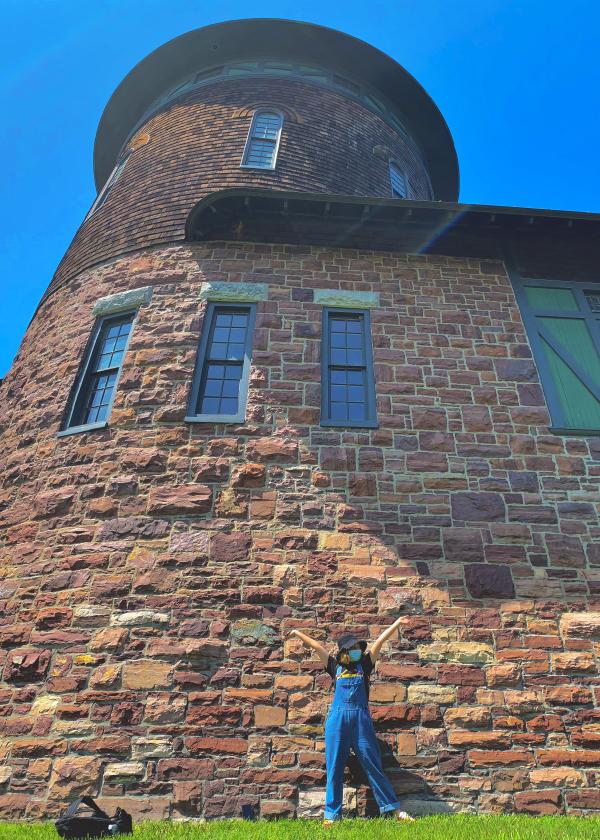What's Taught and What's Learned
Winooski high school students immerse themselves in learning at Shelburne Farms
It’s Monday, July 26th, 8:30 AM, and students from Winooski High School are getting off the bus for the first day of a nine-day program at the farm. It's designed to be part of their “capstone experiences” to demonstrate graduation proficiencies. We've been welcoming K-12 students here for years, but this format is new to us.
Over the first few days, each learner develops a guiding question to shape their exploration. Some ask about how we care for the land (“How do you rest the soil in the market garden?”), while others focus on the Big Ideas of Sustainability (“How do all the systems work together to create healthy agriculture?”). Through their inquiry, I’m hopeful that students will discover some facet of the farm that ignites their passion and curiosity.
On our first outing, we visit the dairy, where we discover one of the calves shares a birthday with a student (June 30)! Dairy farmer Sam Dixon chats with us about working within biological systems to foster the health of the cows and of the many other creatures here. Soon after, chef John Patterson drops by to make veggie enchiladas with students. As he introduces each ingredient, he talks about working with the Market Garden to grow most of what he needs, and sourcing the rest from local farms and businesses. Down at the garden, the students hand-harvest all the ingredients for salsa, guided by gardener Lynn Wolfe. As they enjoy the salsa, they reflect on the fact that they have picked almost everything that went into their food.
As the days rolled by, I thought of a saying from School Programs Coordinator Courtney Mulcahy—one she picked up while working with the Burlington City and Lake Semester Program—“We know what we’ve taught you, but only you can tell us what you’ve learned.” On our last day together, students told us.
We all assembled in the education center: students, their school teachers, and many of the Shelburne Farms staff they had met over the previous days. Every student briefly recollected their farm journey through pictures, stories, and sound-bites, and in doing so demonstrated just how fun and thought-provoking their time here had been.
For some, learning on the farm felt easier: “what we do on the farm is fun… I feel like my time at Shelburne Farms has been very interactive.” Others spoke about taking risks and embracing new experiences. One student began the program apprehensive about interacting with animals. By the end, they were picking up chickens and vigorously scratching sheep. The consensus was that the farm was an excellent place for learning. As one participant shared, “this is one of the most exciting things I did over the summer!”
Students also demonstrated their grasp of the Big Ideas of Sustainability and systems thinking. One girl raised the issues of the plastic used on the farm, and the challenging economics of growing food in an ecologically friendly way. Other students identified how the use of non-carbon energy sources—like solar panels—can help the farm confront climate change. Each student revealed not only what they had learned, but also how they had connected concepts and experiences in creative, emergent ways.
This new program was a challenge and a joy. I am grateful to the students, who contributed so much of their humor, personality, and curiosity to this experience. I am also thankful for the Winooski School District educators, coordinators, and administrators, without whom none of this could have happened. And a big “thank you” to the dozens of Shelburne Farms staff who facilitated this experience, from making sure the right forms were signed, to helping students collect eggs. I appreciate the far-reaching community that supported this work, and I’m excited to see how it might continue to evolve and grow.
